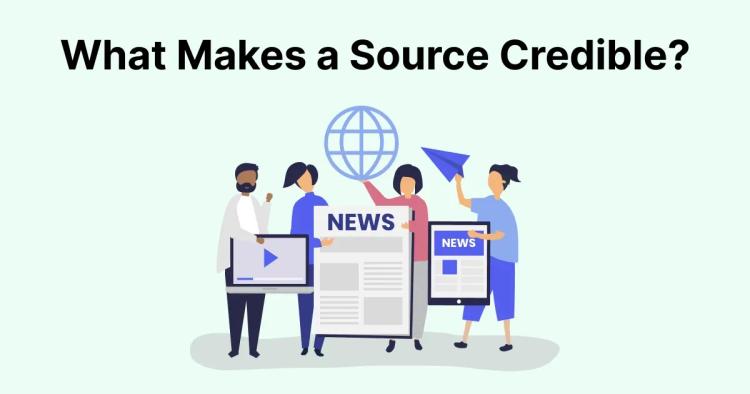Political essays hold a unique power—they have the ability to shape perspectives, influence opinions, and spark crucial conversations. In this comprehensive guide, we'll delve into the art of crafting compelling political essays.
From understanding the importance of political essays to exploring the nuances of the writing process, this journey will equip you with the tools needed to articulate your ideas effectively.
Importance of Political Essays
Political essays serve as the linchpin of democratic societies, acting as conduits for the expression of diverse perspectives. They are the heartbeat of public discourse, allowing individuals to articulate their thoughts on critical issues, shaping public opinion, and contributing to the intellectual tapestry of society.
In an era marked by complexity and nuance, the importance of mastering the art of political essay writing cannot be overstated. Before embarking on the journey of crafting a political essay, it is crucial to understand the multifaceted nature of the writing process.
From the initial spark of an idea to the meticulous editing of the final draft, each stage plays a pivotal role in the creation of an impactful and persuasive piece.
Understanding Political Essays
Definition and Purpose
Political essays transcend the realm of mere rhetoric; they are dynamic expressions of thought that aim to elucidate, persuade, and provoke contemplation.
Understanding the purpose of a political essay is akin to unlocking a treasure trove of rhetorical tools, each contributing to the overarching goal of influencing and enlightening.
Key Elements to Include
The anatomy of a powerful political essay consists of various elements working in harmony. From a clearly defined thesis statement that encapsulates your argument to well-supported evidence that validates your claims, each component contributes to the cohesion and effectiveness of the essay.
Different Kinds of Political Essays
Political essays come in various forms, each tailored to address specific aspects of political discourse. Understanding the different kinds equips writers with the flexibility to effectively communicate their ideas.
Here are some prevalent types:
Analytical Political Essays:
Analytical essays delve deep into a political issue, breaking it down to examine its components. Writers critically assess the causes, consequences, and implications, providing a nuanced understanding of the topic.
Persuasive Political Essays:
Persuasive essays aim to sway the reader's opinion or encourage a particular course of action. These essays employ compelling arguments, evidence, and rhetoric to persuade readers to adopt the writer's viewpoint.
Comparative Political Essays:
Comparative essays juxtapose different political systems, theories, or historical events. Writers analyze similarities and differences, providing insight into the strengths and weaknesses of various political paradigms.
Historical Political Essays:
Historical essays explore political events and their impact on the present. Writers analyze the historical context of political phenomena, offering perspectives on how past events shaped contemporary politics.
Opinion Editorial (Op-Ed) Essays:
Op-Ed essays are concise pieces expressing the writer's opinion on a current political issue. Published in newspapers or online platforms, these essays offer succinct viewpoints to a broad audience.
Research-Based Political Essays:
Research-based essays involve in-depth investigation and empirical analysis of political topics. Writers draw on scholarly sources and data to support their arguments, contributing to academic discourse.
Policy Analysis Essays:
Policy analysis essays assess the effectiveness of political policies. Writers evaluate the impacts, implications, and feasibility of proposed or existing policies, providing recommendations for improvement.
Reflective Political Essays:
Reflective essays allow writers to express personal experiences or reactions to political events. These essays provide a platform for introspection and exploration of the writer's evolving political perspectives.
Argumentative Political Essays:
Argumentative essays present a clear thesis and support it with logical reasoning and evidence. Writers engage with opposing viewpoints, anticipating, and addressing counterarguments to strengthen their position.
Issue-Based Political Essays:
Issue-based essays focus on a specific political problem or concern. Writers explore the roots of the issue, propose solutions, and advocate for societal awareness and action.
By understanding the nuances of these different types of political essays, writers can tailor their approach to suit the specific goals and context of their writing. Whether seeking to inform, persuade, or analyze, the choice of essay type shapes the narrative and influences the impact on the reader and the broader political discourse.
Tip 1:Thorough Research
Importance of Reliable Sources
The credibility of a political essay hinges on the foundation of robust research. Delve into the nuances of discerning reliable sources, understanding the importance of peer-reviewed journals, authoritative publications, and expert opinions.
Navigate the labyrinth of information to ensure that your arguments are anchored in a bedrock of authenticity.
Fact-Checking in Political Writing
In an era, rife with misinformation, the role of fact-checking in political writing becomes paramount. Explore methodologies for cross-referencing information, verifying data, and ensuring the accuracy of your claims.
Uphold the ethical responsibility of presenting truth amidst the cacophony of competing narratives.
Tip 2: Structuring Your Essay
Introduction and Thesis Statement
The introduction of a political essay is not merely a preliminary formality; it is the grand entrance that sets the tone for the entire discourse. Delve into techniques for crafting introductions that captivate attention and formulate thesis statements that act as guiding beacons for your readers.
Body Paragraphs and Supporting Evidence
The body of your essay is the canvas upon which your arguments come to life. Explore the art of constructing coherent and persuasive body paragraphs.
Learn to weave a narrative that seamlessly integrates supporting evidence, statistics, and examples, fostering a compelling and logically structured argument.
Conclusion and Call to Action
A political essay without a powerful conclusion is like a symphony without a finale. Examine strategies for crafting conclusions that resonate, summarizing key points while providing a compelling call to action. Leave your readers not only informed but also inspired to engage with the issues at hand.
Tip 3: Crafting a Compelling Argument
Developing a Strong Thesis
The thesis statement is the beating heart of your political essay. Delve into the art of formulating a thesis that is not only robust but also nuanced—a statement that encapsulates the complexity of your argument while providing a clear roadmap for your readers.
Balancing Persuasion and Objectivity
The delicate dance between persuasion and objectivity requires finesse. Explore strategies for presenting your viewpoint with persuasive eloquence while maintaining an objective stance that fosters respect for diverse perspectives.
Strike the balance that resonates with your audience intellectually and emotionally.
Tip 4: Effective Use of Language
Precision in Vocabulary
Language is a powerful tool, and the precision of your vocabulary can make the difference between a compelling argument and a forgettable one. Dive into the art of selecting words with surgical precision, ensuring that each term contributes to the clarity and impact of your message.
Avoiding Biased Language
The insidious nature of bias can undermine even the most well-constructed arguments. Uncover the subconscious biases that may permeate your language and learn techniques for eliminating them, creating a narrative that is not only persuasive but also fair and impartial.
Tip 5: Revise and Edit
Importance of Proofreading
Proofreading is the unsung hero of the writing process. Explore the transformative power of meticulous proofreading, where each pass through your essay unveils opportunities for refinement and enhancement.
Elevate your writing from good to exceptional through the relentless pursuit of perfection.
Utilizing Grammar Checker Tools
Introducing a technological ally into the editing process can be a game-changer. Dive into the world of Copychecker's Grammar Checker, exploring how this tool goes beyond mere grammar correction to offer insights into the overall coherence and style of your writing.
Embrace technology as a partner in your pursuit of writing excellence.
Introducing Copychecker's Grammar Checker
Copychecker's Grammar Checker emerges as a sophisticated tool, designed to be more than just a grammar correction mechanism. It is a comprehensive writing assistant, augmenting the quality and coherence of your political essays.
Let's delve deeper into the myriad features and benefits that make Copychecker a potent ally in your writing endeavors.
Features and Benefits
1. Real-time Grammar Corrections:
- Feature: Copychecker's Grammar Checker operates in real-time, identifying and correcting grammatical errors as you type.
- Benefit: This feature ensures that your writing remains fluid and error-free throughout the drafting process, saving time on extensive proofreading.
2. Contextual Style Suggestions:
- Feature: Beyond grammar, Copychecker analyzes your writing style, providing nuanced suggestions to enhance coherence and consistency.
- Benefit: Your political essays not only adhere to grammatical rules but also maintain a consistent and polished style, contributing to a more professional and impactful presentation.
3. Vocabulary Enhancement:
- Feature: Copychecker suggests alternative vocabulary choices, allowing you to diversify and refine your language.
- Benefit: Enrich your political essays by avoiding repetitive language, elevating the sophistication of your expression, and engaging a broader audience.
4. Sentence Structure Improvements:
- Feature: The tool identifies opportunities to improve sentence structure, offering suggestions for better clarity and flow.
- Benefit: Ensure that your arguments are presented in a manner that is not only grammatically correct but also structurally sound, enhancing overall readability.
5. In-depth Writing Analysis:
- Feature: Copychecker conducts a thorough analysis of your writing, offering insights into readability, tone, and overall writing quality.
- Benefit: Receive a holistic view of your political essay, enabling you to address areas beyond grammar, such as tone consistency and overall cohesiveness.
Accessibility and User-Friendly Interface
One of the hallmarks of Copychecker is its accessibility. Without the need for cumbersome sign-ups or logins, this tool is designed to be a hassle-free addition to your writing toolkit. Navigate through its user-friendly interface, unlocking its potential with ease.
Using Copychecker for Political Essays
Step-by-Step Guide
Embark on a guided tour through the process of integrating Copychecker into your political essay writing workflow. From uploading your document to implementing suggested corrections, learn how to harness the full potential of this tool to refine your arguments and enhance your writing style.
Real-time Grammar and Style Suggestions
Witness the real-time magic of Copychecker as it provides not only grammar corrections but also style suggestions that transcend the conventional realm of editing. See how this tool becomes your virtual writing mentor, offering insights that propel your writing from proficient to exceptional.
FAQs
What are the parts of a political essay?
A political essay typically comprises three main parts: the introduction, body paragraphs, and conclusion. The introduction sets the stage, the body presents arguments with supporting evidence, and the conclusion summarizes key points and often suggests a call to action.
How to start a political essay?
Begin a political essay with a compelling introduction that grabs the reader's attention. Start with a thought-provoking question, a relevant quote, or a concise anecdote. Clearly state your thesis in the introduction to provide a roadmap for your arguments.
When should you write a political essay?
You should write a political essay when you want to express your perspective on a political issue, contribute to public discourse, or influence opinions. Political essays are effective tools for engaging with current events, policy discussions, or expressing your stance on political ideologies.
What is an essay in politics?
An essay in politics is a written piece that presents a coherent and well-reasoned argument on a political topic. It involves analyzing issues, presenting evidence, and articulating a viewpoint to persuade or inform readers about political matters.
How do you start a political paper?
To initiate a political paper, begin with a focused and engaging introduction. Clearly state your thesis, provide context for the issue at hand, and briefly outline the main points you'll address. A strong start sets the tone for a compelling political paper.
Conclusion
As we draw the curtains on this extensive guide, revisit the essential tips that form the bedrock of political essay writing. From thorough research to the judicious use of language, each tip is a beacon guiding you towards crafting essays that resonate and endure.
The craft of political essay writing is not a static endeavor; it is a dynamic journey of continuous improvement. Embrace each essay as an opportunity to refine your skills, amplify your voice, and contribute meaningfully to the ongoing narrative of societal discourse.
In your pursuit of mastery, let each word be a step forward, and each essay, a testament to the power of thoughtful expression.




